


Joseph R. Anticaglia MD
Medical Advisory Board
What’s causing Dr. Antony Fauci’s voice problem? In early April of this year, the respected infectious disease expert and Director of the National Institute of Allergy and Infectious Disease was queried by Savanah Guthrie during a TV “Today” interview. She asked, “Are you OK? Your voice doesn’t sound great.”
In a few seconds, we can tell if there’s something wrong with a person’s voice. People might wonder if a person’s voice problem is due to smoking, aging, vocal misuse or an early sign of cancer? There are many other reasons for hoarseness which is an unpleasant change in the quality of the voice.
Your voice is unhealthy if it doesn’t sound right to you or others. It’s a symptom, not a disease. It’s a clue to an underlying problem. If it persists for two or more weeks, it’s best to have a thorough head and neck (H&N) examination to diagnose the causes of the hoarseness.
Some of the other causes of hoarseness, although less frequent, are potentially more serious. In this category are growths and tumors of the larynx, neurological problems, strokes, thyroid disorders and interference with the normal functioning of the vocal tract.
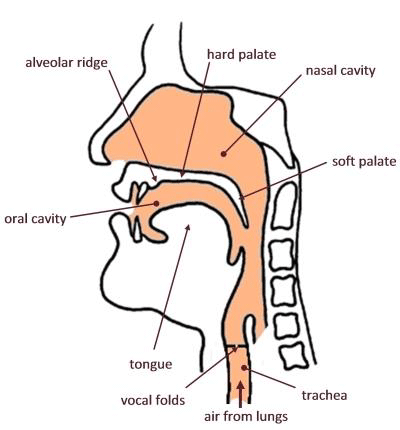
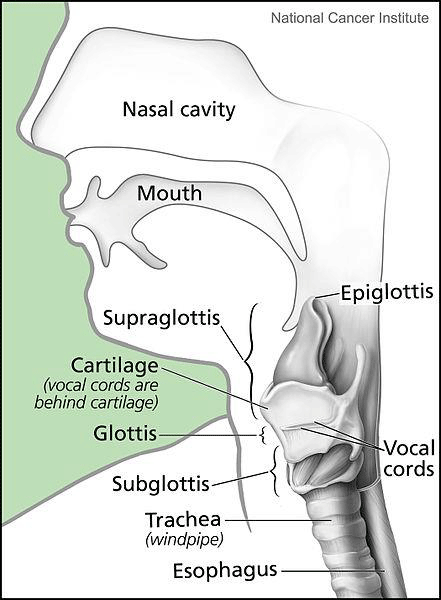
The lungs pump air superiorly across the trachea (windpipe) causing the vocal folds of the larynx (voice box) to vibrate producing indistinct sounds. These sounds continue upward along the vocal tract.
The vocal tract, above the vocal folds, consists of the back of the throat, back of the nose and nasal cavity, tongue, soft palate and lips which shape sounds into distinct speech or song. The size and shape of the vocal tract is different from one age to another and from individual to individual contributing to one’s characteristic voice.
Vocal folds are also referred to as vocal cords. If you separate the index and middle fingers of your hand, that’s a very rough idea of the V shape configuration of the vocal folds of the larynx. When you put these same two fingers together, it can be a reminder that the vocal folds need to come together in order to produce sound. What can go wrong?
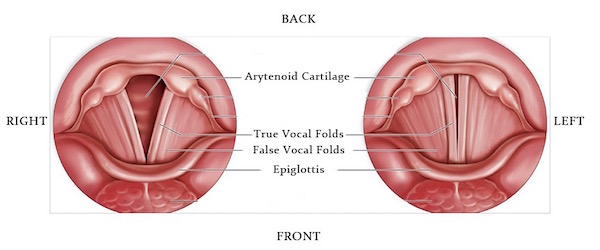
Any condition that interferes with the approximation or vibration of the true vocal folds can result in hoarseness. Most conditions are benign, not cancerous.
I understand it’s presumptuous of me or anyone to diagnose an individual without personally examining the patient and without carrying out a complete H&N examination. But there are Dr. Fauci’s comments and a few clues that lead one to conclude that his voice problem is benign. Dr. Fauci said, on April 2 of this year, to Savanah Guthrie about his hoarseness,
“No, I am fine. I’m physically fine. All I do all day long is brief people — Governors, Senators, White House, interviews. I just need to keep my mouth shut for a little while and it will get better.”
Most often there are two adverse aspects of a damaged voice. One problem adversely affects loudness, (the intensity of the voice); the other affects the quality of the voice. Any disorder that prevents the normal movement of the vocal folds or interferes with the passage of the breath stream from the lungs can cause symptoms interfering with the quality or loudness of the voice. Most of the time the hoarseness is mild and temporary, But it can be severe, persistent, wreck a professional’s career or be a symptom of a cancerous growth.
In the case of Dr. Fauci who will be 80 years old in December of 2020, the most likely cause is vocal abuse/misuse. Misuse of the voice can cause the vocal folds to become swollen and inflamed so that they don’t come together normally in the midline (laryngitis). Chronic hoarseness can lead to the formation of tiny bumps on the vocal folds called nodules exacerbating the dysphonia. Polyps or bowing of the true vocal cords (associated with aging) are other cause of hoarseness. They prevent the true vocal folds to meet in the midline and vibrate normally.
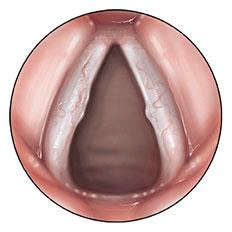
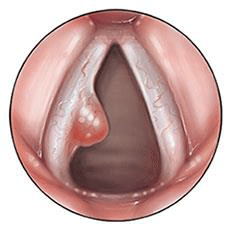
Your voice is unique. It’s a voiceprint, an audio fingerprint that distinguishes you from other people. Although most problems with the voice are benign, temporary and correctable, persistent hoarseness can be serious and is never normal. It can lead to permanent damage to the vocal folds affecting both your personal relationships and livelihood. If you do have a problem with your voice, have it evaluated by a specialist. I’m sure Dr. Fauci did just that.
This article is intended solely as a learning experience. Please consult your physician for diagnostic and treatment options.